Rebecca Adaimi
Advancing Location-Invariant and Device-Agnostic Motion Activity Recognition on Wearable Devices
Feb 06, 2024Abstract:Wearable sensors have permeated into people's lives, ushering impactful applications in interactive systems and activity recognition. However, practitioners face significant obstacles when dealing with sensing heterogeneities, requiring custom models for different platforms. In this paper, we conduct a comprehensive evaluation of the generalizability of motion models across sensor locations. Our analysis highlights this challenge and identifies key on-body locations for building location-invariant models that can be integrated on any device. For this, we introduce the largest multi-location activity dataset (N=50, 200 cumulative hours), which we make publicly available. We also present deployable on-device motion models reaching 91.41% frame-level F1-score from a single model irrespective of sensor placements. Lastly, we investigate cross-location data synthesis, aiming to alleviate the laborious data collection tasks by synthesizing data in one location given data from another. These contributions advance our vision of low-barrier, location-invariant activity recognition systems, catalyzing research in HCI and ubiquitous computing.
Lifelong Adaptive Machine Learning for Sensor-based Human Activity Recognition Using Prototypical Networks
Mar 11, 2022
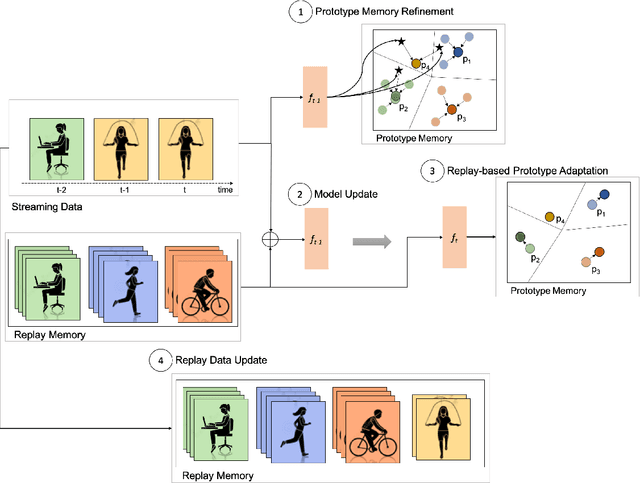
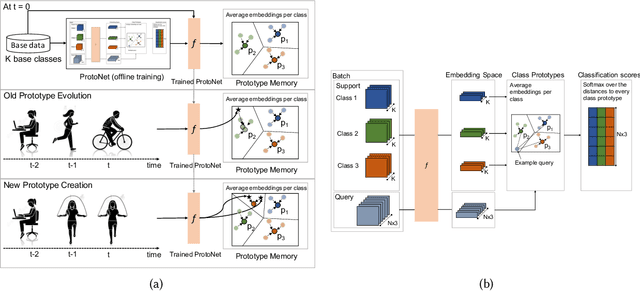

Abstract:Continual learning, also known as lifelong learning, is an emerging research topic that has been attracting increasing interest in the field of machine learning. With human activity recognition (HAR) playing a key role in enabling numerous real-world applications, an essential step towards the long-term deployment of such recognition systems is to extend the activity model to dynamically adapt to changes in people's everyday behavior. Current research in continual learning applied to HAR domain is still under-explored with researchers exploring existing methods developed for computer vision in HAR. Moreover, analysis has so far focused on task-incremental or class-incremental learning paradigms where task boundaries are known. This impedes the applicability of such methods for real-world systems since data is presented in a randomly streaming fashion. To push this field forward, we build on recent advances in the area of continual machine learning and design a lifelong adaptive learning framework using Prototypical Networks, LAPNet-HAR, that processes sensor-based data streams in a task-free data-incremental fashion and mitigates catastrophic forgetting using experience replay and continual prototype adaptation. Online learning is further facilitated using contrastive loss to enforce inter-class separation. LAPNet-HAR is evaluated on 5 publicly available activity datasets in terms of the framework's ability to acquire new information while preserving previous knowledge. Our extensive empirical results demonstrate the effectiveness of LAPNet-HAR in task-free continual learning and uncover useful insights for future challenges.
Using Convolutional Variational Autoencoders to Predict Post-Trauma Health Outcomes from Actigraphy Data
Nov 20, 2020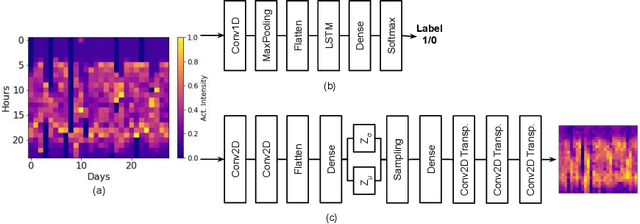
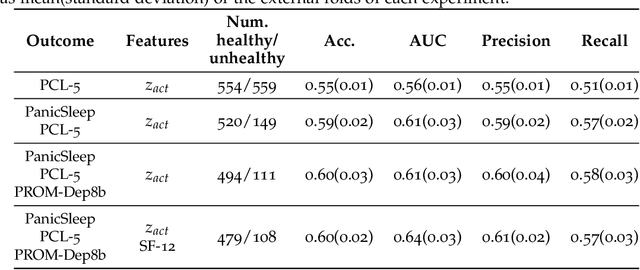
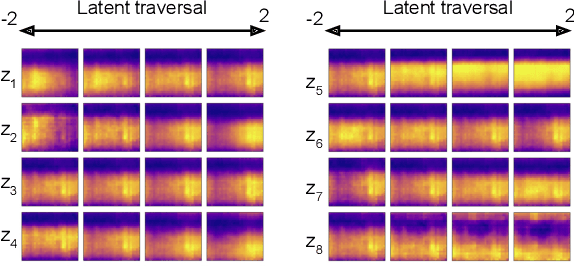

Abstract:Depression and post-traumatic stress disorder (PTSD) are psychiatric conditions commonly associated with experiencing a traumatic event. Estimating mental health status through non-invasive techniques such as activity-based algorithms can help to identify successful early interventions. In this work, we used locomotor activity captured from 1113 individuals who wore a research grade smartwatch post-trauma. A convolutional variational autoencoder (VAE) architecture was used for unsupervised feature extraction from four weeks of actigraphy data. By using VAE latent variables and the participant's pre-trauma physical health status as features, a logistic regression classifier achieved an area under the receiver operating characteristic curve (AUC) of 0.64 to estimate mental health outcomes. The results indicate that the VAE model is a promising approach for actigraphy data analysis for mental health outcomes in long-term studies.
 Add to Chrome
Add to Chrome Add to Firefox
Add to Firefox Add to Edge
Add to Edge